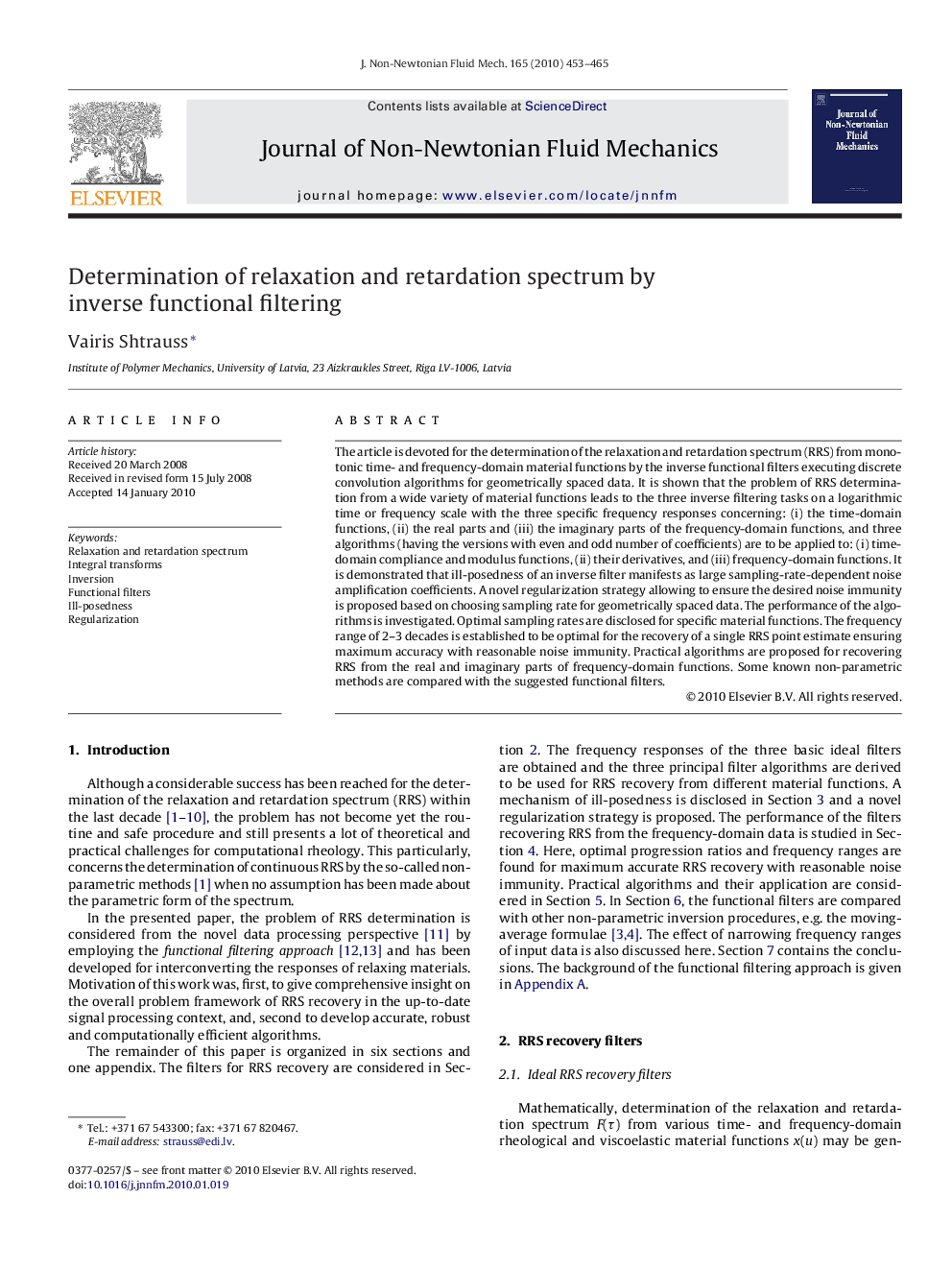| Article ID | Journal | Published Year | Pages | File Type |
|---|---|---|---|---|
| 671037 | Journal of Non-Newtonian Fluid Mechanics | 2010 | 13 Pages |
The article is devoted for the determination of the relaxation and retardation spectrum (RRS) from monotonic time- and frequency-domain material functions by the inverse functional filters executing discrete convolution algorithms for geometrically spaced data. It is shown that the problem of RRS determination from a wide variety of material functions leads to the three inverse filtering tasks on a logarithmic time or frequency scale with the three specific frequency responses concerning: (i) the time-domain functions, (ii) the real parts and (iii) the imaginary parts of the frequency-domain functions, and three algorithms (having the versions with even and odd number of coefficients) are to be applied to: (i) time-domain compliance and modulus functions, (ii) their derivatives, and (iii) frequency-domain functions. It is demonstrated that ill-posedness of an inverse filter manifests as large sampling-rate-dependent noise amplification coefficients. A novel regularization strategy allowing to ensure the desired noise immunity is proposed based on choosing sampling rate for geometrically spaced data. The performance of the algorithms is investigated. Optimal sampling rates are disclosed for specific material functions. The frequency range of 2–3 decades is established to be optimal for the recovery of a single RRS point estimate ensuring maximum accuracy with reasonable noise immunity. Practical algorithms are proposed for recovering RRS from the real and imaginary parts of frequency-domain functions. Some known non-parametric methods are compared with the suggested functional filters.
